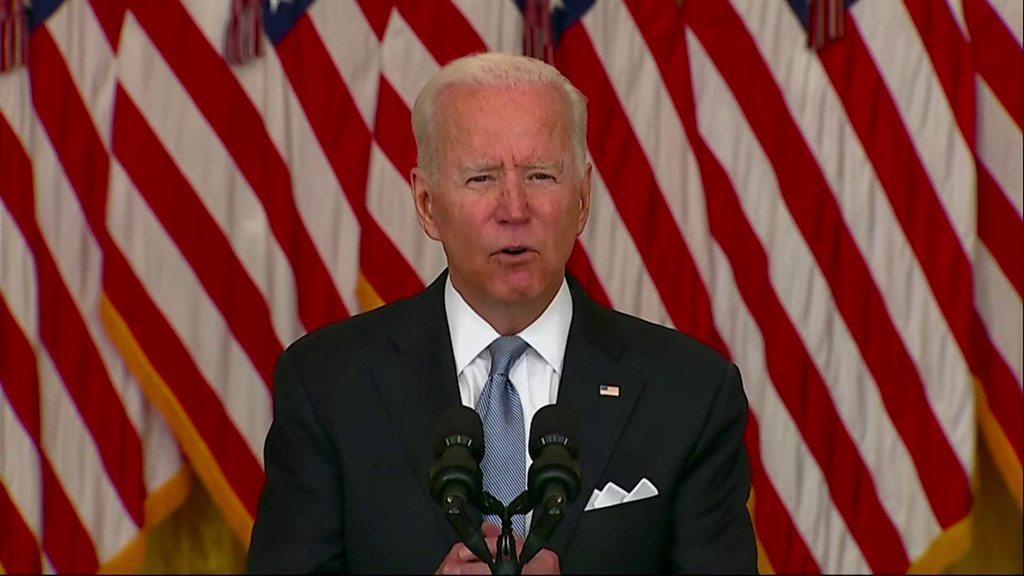9/11 anniversary: From United to Disunited States
- Published
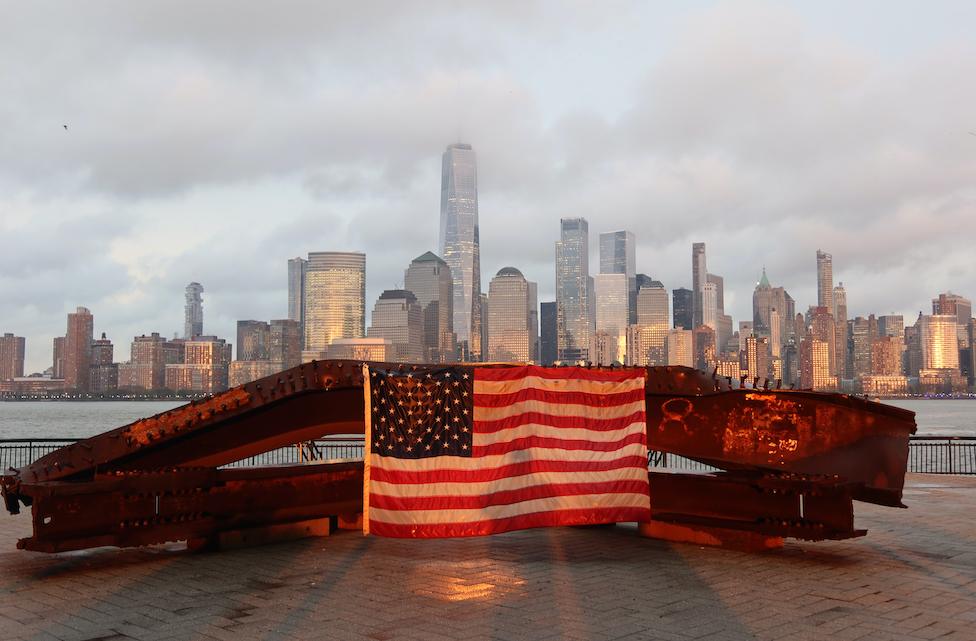
It's almost a cliche, hackneyed even. A big event happens, and people say they will never forget where they were when they heard about this or that.
But I suspect nearly everyone around the world above the age of 30 really does remember where they were when they heard about, then watched in real time, the most audacious, most dreadful terrorist attack on the United States unfold.
Over the past few days, I have been talking to people not only who remember where they were, but how it upended their lives
We spoke to Max Giaconne, who was 10 years old - and four days into his new school - when the teacher told him he needed to go to the principal's office. And there was his mother in tears. Max's father worked in the World Trade Center.
Ann Van Hine was driving when she heard on the radio about the attack on the twin towers - and then an order calling all firemen to report for duty. She knew in that moment - with a terrible foreboding - her husband would be rushing into the Twin Towers as everyone else was trying to escape.
And then I spoke to Andy. Like Max he was in an elementary school. But not as a pupil.
Andy Card was President Bush's chief of staff, and had to interrupt the commander in chief as he read to schoolchildren to tell them that a second plane had hit the Twin Towers. His comments were succinct and brief: "America is under attack," he told the president.
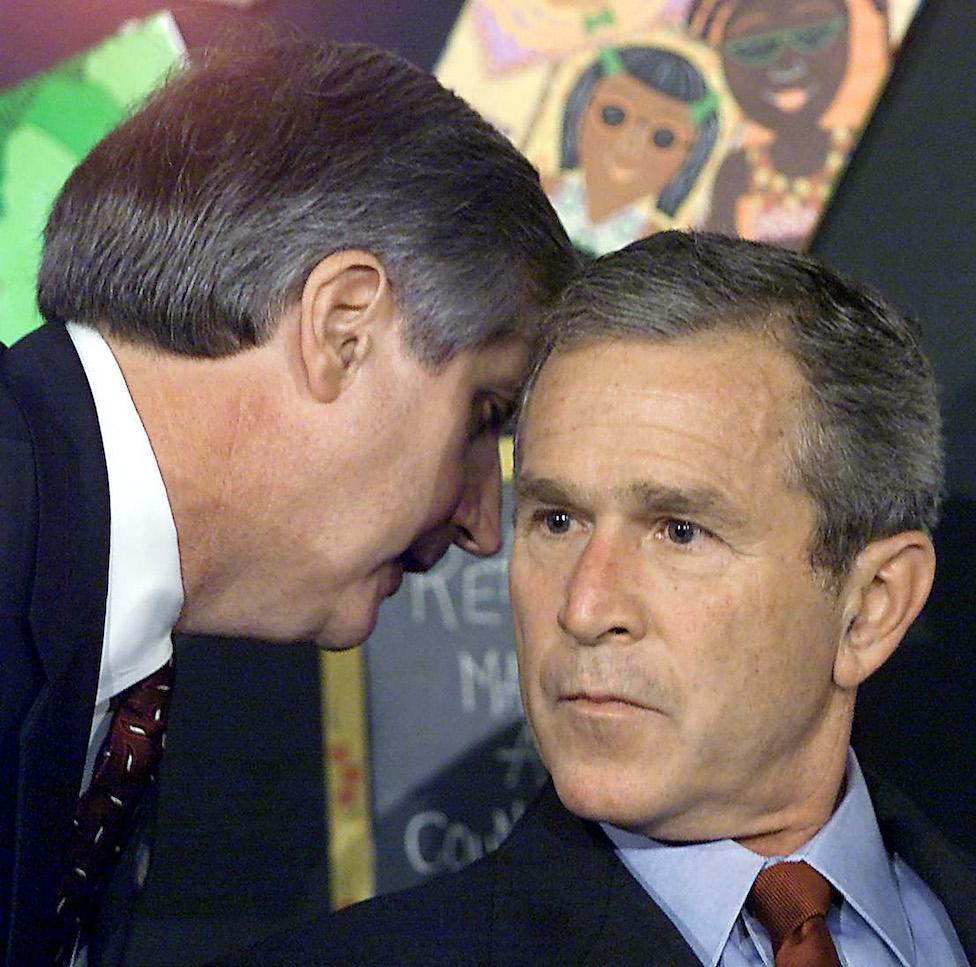
Andy Card utters four words in the president's ear
I remember the day vividly.
As the BBC's Paris correspondent, I was reporting on attempts by Eurotunnel to curb the flow of illegal immigrants across the channel (some issues remain stubbornly familiar). We were driving from Lille to Calais for the evening news when my producer called to say we needed to find a television as something unbelievable was happening in New York.
That afternoon my cameraman and I sat and edited our piece for the evening news but were unable to concentrate as we watched live the horrors unfolding across the Atlantic. A motorcycle dispatch rider went to my home in Paris to collect my passport and bring it to Calais. Who knew where we'd end up next.
Some things about that day, that period I remember vividly. I remember the powerful sense of clarity it brought to so many people.
Though the democracy we lived in might be imperfect with some dodgy, scheming politicians around - would we rather be living in societies with freedom of speech, due process, the rule of law, sexual equality, free and fair elections; or do we stand with those who would fly planes into buildings, who would stone homosexuals to death, who would deny women an education?
Watch: Four stories of how the world reacted on 9/11
Simplistic maybe, but in a world that is made up of almost imperceptibly different shades of grey, this seemed black and white.
But the other evening I watched the stunning BBC documentary 9/11: Inside The President's War Room which, incidentally, features that man Andy Card. And somehow 20 years on I had forgotten the chaos, the sheer panic, the disbelief that engulfed the US and its leadership.
The rulers of the richest country in the world with the most feared military machine were cowering in bunkers, unclear what might happen next, uncertain what to do, fearful there might be a second wave of attacks.
Though that is only part of the story. Alongside that there was a steely resolve; a unity of purpose. Twenty years ago Americans stood together; and most of the rest of the world stood with America. It was vividly exemplified by the Queen breaking with protocol (not something done lightly by the royal family), and ordering the Coldstream Guards to play the Star Spangled Banner during the Changing the Guard ceremony.
Watch: The heroes of 9/11's forgotten maritime rescue mission
There was iron resolve - the events of 9/11 would be avenged.
Army recruitment offices would see long queues form outside their doors. Democrats and Republicans put aside their petty partisan bickering to focus on the big picture. And when George Bush stood on the rubble of the Twin Towers with a policeman's bullhorn in hand and said he had heard the American people, and the perpetrators of this crime would soon be hearing from America, he spoke for the nation.
Within weeks a massive multinational force was assembled, with America spearheading, to force the Taliban - who'd allowed the al-Qaeda leaders who plotted the 9/11 attacks to set up terrorism finishing schools in the country - out of power.
It was relatively straightforward militarily. I was despatched from Paris to move with a front line in Northern Afghanistan. I watched just outside Kunduz as B52 bombers flew daily sorties to dislodge the Taliban from their last remaining stronghold in the North.
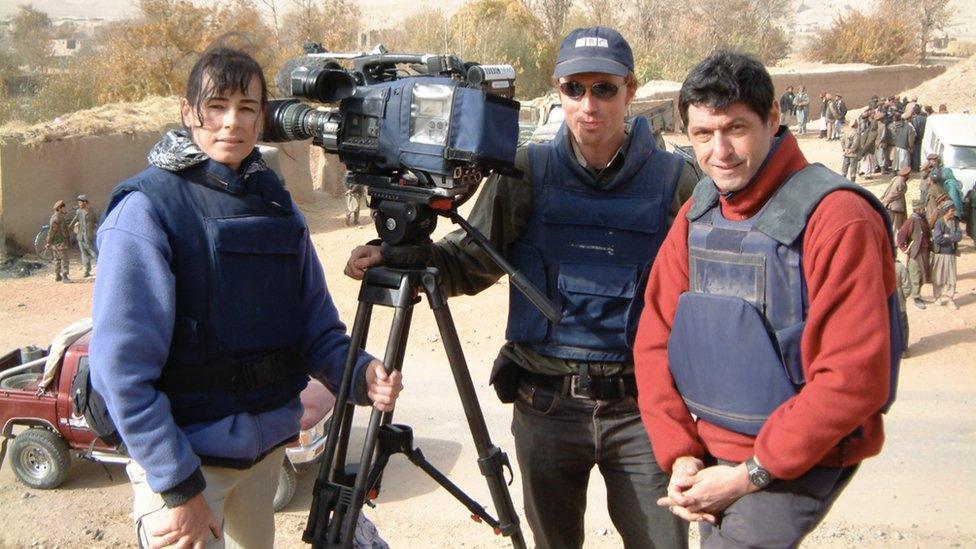
Ousting the Taliban was considered a global priority 20 years ago, writes the author (right)
This would be the start of a series of American entanglements.
And one thing they all seemed to share is a lack of long term success. The "liberal interventionism" championed by both President Bush and Tony Blair saw the Taliban booted out of Afghanistan, and Saddam Hussain ousted in Iraq - but what followed became known as the "forever wars". Messy entanglements where victory - if that is measured by a smooth functioning democracy - always bloodily out of reach.
When President Obama came into power there was a different approach.
In Libya the Americans would support the overthrow of Colonel Gaddafi, but at arm's length; with the Syrian civil war, America huffed and puffed but chose to sit that one out. In Egypt, the US supported the overthrow of President Mubarak - but when the Egyptians elected the Muslim Brotherhood to power, the Americans made clear their displeasure, and the generals moved back in.
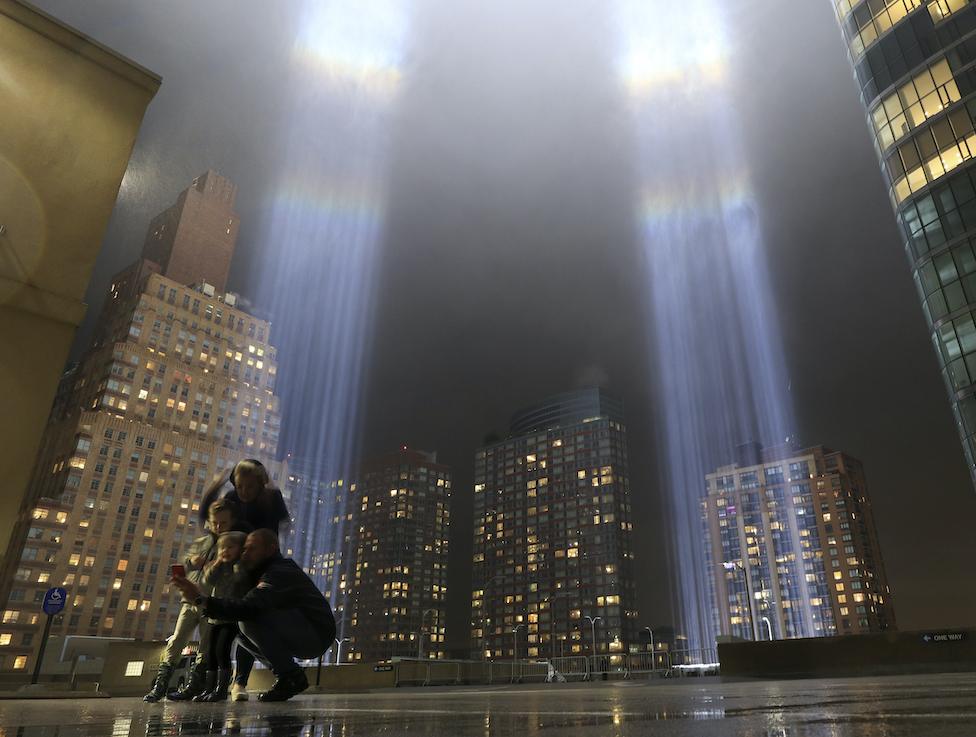
Every year, New York remembers
In other words the Americans had tried invasion - it went badly. They'd tried "intervention-lite" - still no good. Staying outside a conflict brought criticism, and supporting the spread of democracy only worked if voters went for US friendly governments. It's a pretty unhappy tale of foreign intervention.
The reasons for Donald Trump's victory in 2016 - with his proclamation of America First - are various. But one of them was certainly the growing weariness of the American people to the cost of these military entanglements.
And this is the backdrop to the commemorations taking place in New York this weekend. Twenty years ago, Americans in the face of tragedy were united. Today, with relative peace and considerable prosperity they are bitterly divided.
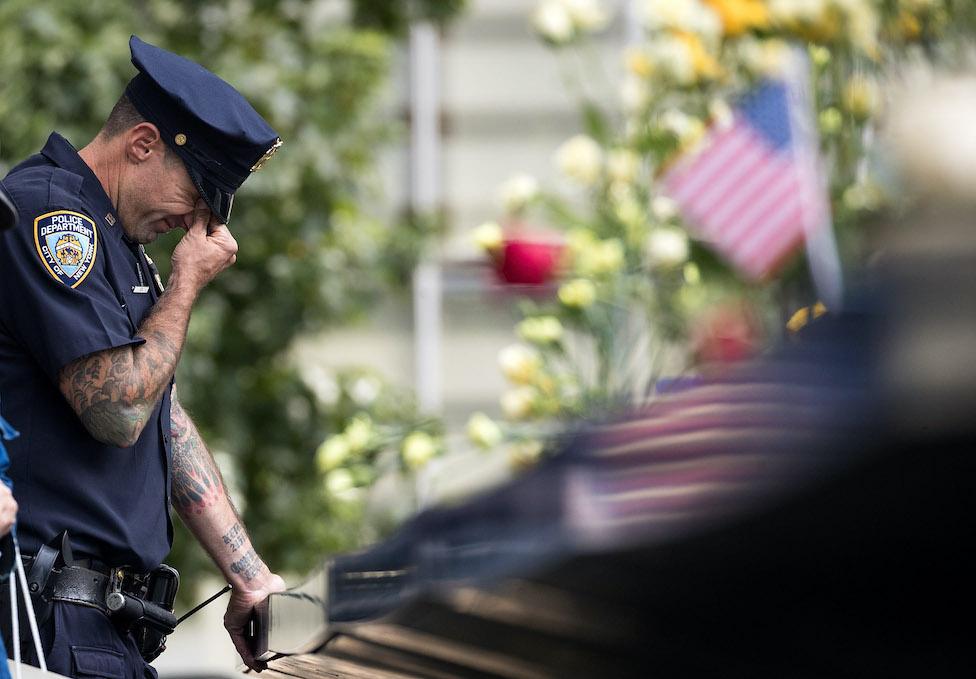
...but for some it's too much to bear
So to 2021. How incredible that to mark the 20th anniversary of 9/11 the Taliban have been forming their new government. The pre-eminent superpower seems to be suffering a crisis of confidence; and in the manner of its departure from Afghanistan ordered by Joe Biden - the Kabul debacle - a crisis of competence.
I met Ann Van Hine in Battery Park, on the southern tip of Manhattan. She's appalled how much America has turned inwards and how Americans have turned against each other. She believes the unity shown 20 years ago is possible again today. As we sit talking, I realise that we are looking out to New York Harbour, towards the Statue of Liberty, with the stirring poem New Colossus on the plinth.
"Give me your tired, your poor,
Your huddled masses yearning to breathe free,
The wretched refuse of your teeming shore.
Send these, the homeless, tempest-tost to me,
I lift my lamp beside the golden door!"
Lady Liberty symbolises America opening its arms to the world.
The opening of that golden door.
But 20 years on the US feels a much sadder, more introspective place.
- Published23 August 2021
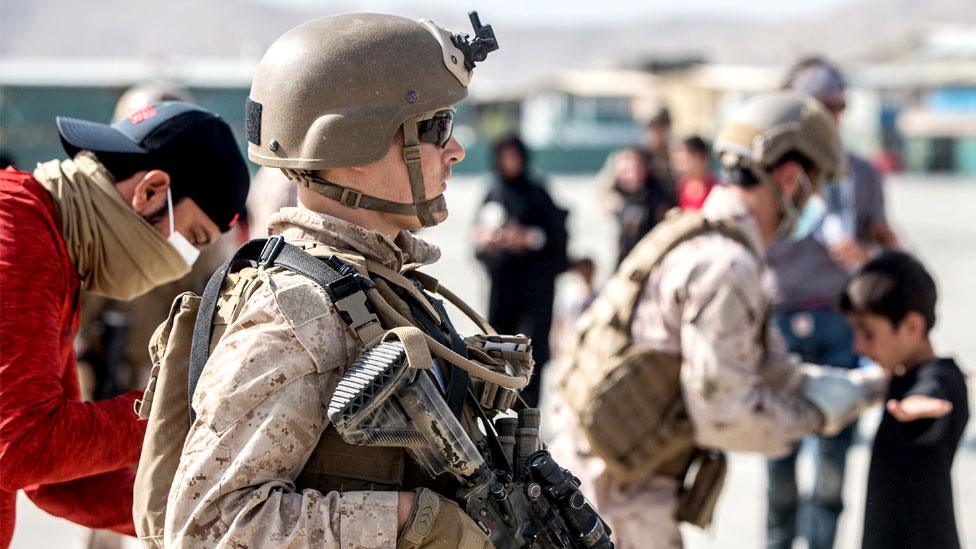
- Published19 August 2021
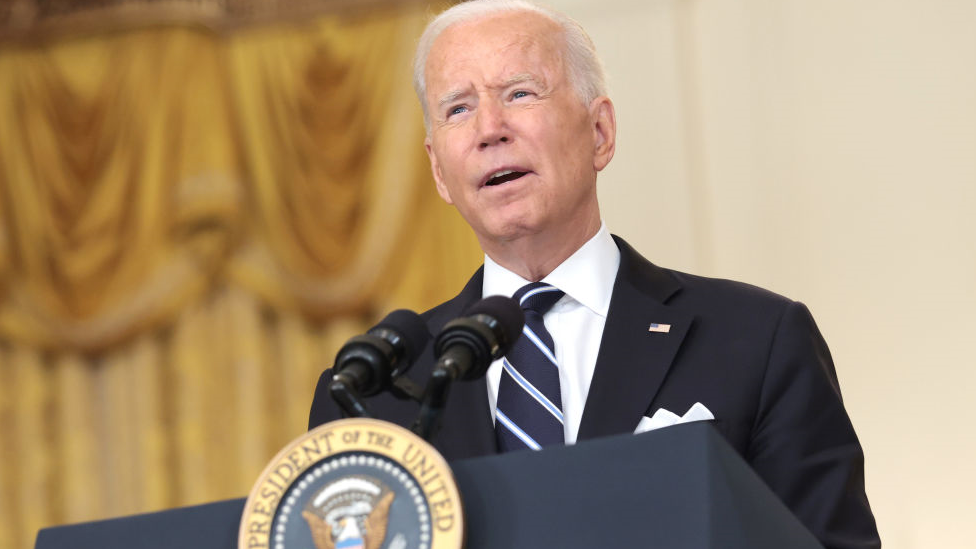
- Published17 August 2021
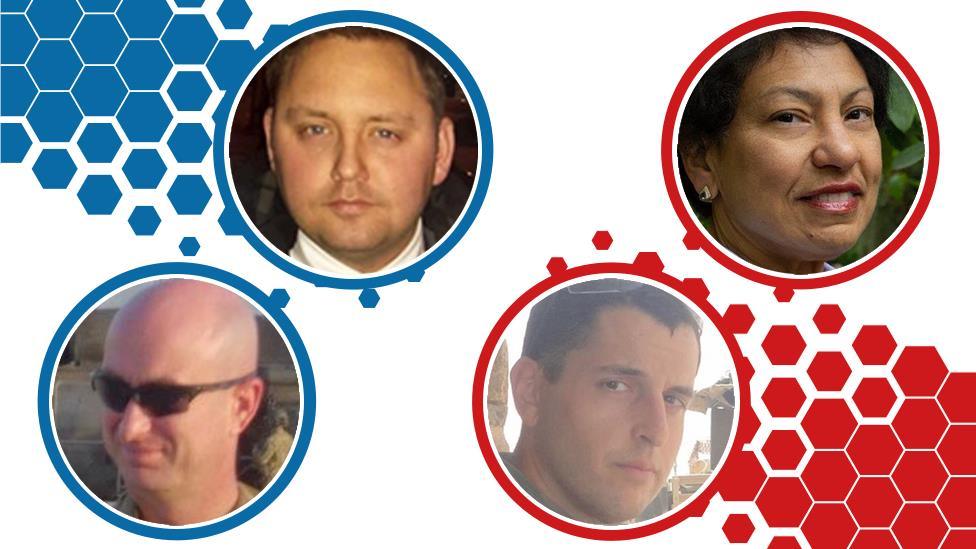
- Published17 August 2021
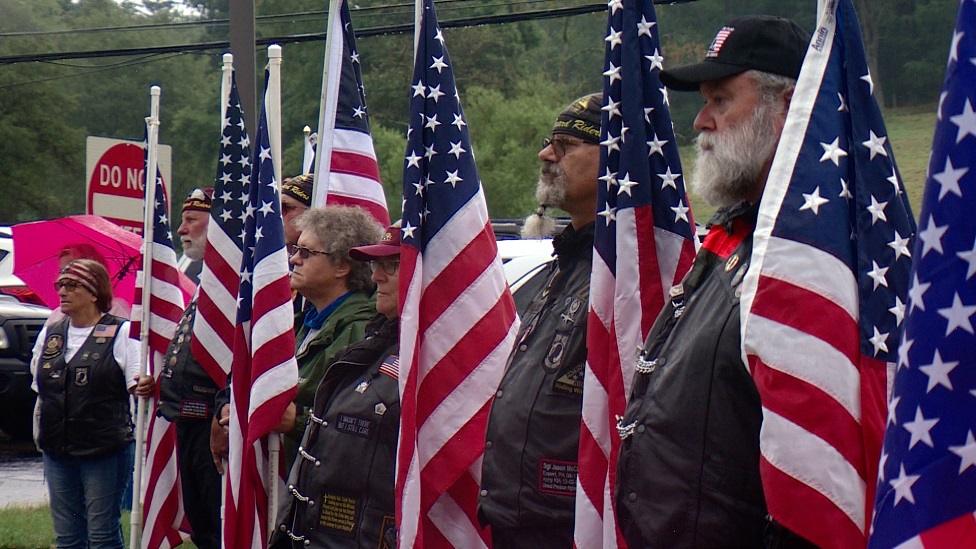
- Published16 August 2021
